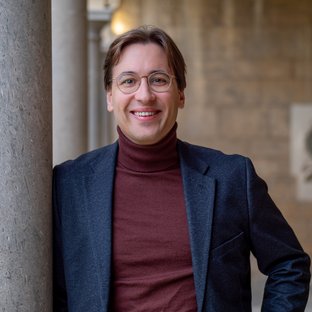
Dr Jascha Achterberg
Biography
Before joining St John’s College and the University of Oxford, I did my PhD at the University of Cambridge (MRC Cognition and Brain Sciences Unit and ironically also St John’s College). My work focused on the general principles underlying complex cognition in biological systems and artificial intelligence under the supervision of John Duncan and Matthew Botvinick, in collaboration with both Google DeepMind and Intel.
Teaching
I am excited to hear from students who are interested in pursuing research at the intersection of complex cognition, algorithm design / artificial neural networks, and computing systems. Students I have supervised in the past came from a variety of backgrounds, including cognitive science, neuroscience, computer science, electrical engineering, economics, and applied mathematics.
Research Interests
My research focuses on understanding how the brain's system-level architecture enables flexible cognition and how it can be translated into large-scale computing systems. This means I start by investigating how the brain is organized—which specialized submodules it contains, what circuit patterns these submodules use, and how its connections and topology allow different regions to communicate and coordinate. With this understanding of how the brain's distributed architecture produces sophisticated cognition, I can then replicate these principles in algorithms and computing circuits, to understand which specific features bring which specific functional benefits. The overall goal of this link between biological and artificial computing is to understand the general principles of intelligence in large-scale distributed computing systems. As a result, my work addresses both the need for more capable theoretical models that can capture the complexity of modern neuroscientific data and the opportunity to develop more efficient computing architectures by understanding how biological systems achieve intelligence at scale.
Publications
Cook, J., Akarca, D., Costa, R. P., & Achterberg, J. (2025). Brain-Like Processing Pathways Form in Models With Heterogeneous Experts. arXiv preprint. https://arxiv.org/abs/2506.02813
Mione, V., Achterberg, J., Kusunoki, M., Buckley, M. J., & Duncan, J. (2025). Neural dynamics of an extended frontal lobe network in goal-subgoal problem solving. bioRxiv, 2025-05. https://www.biorxiv.org/content/10.1101/2025.05.06.652442v1.abstract
Schmidgall, S., Ziaei, R., Achterberg, J., Kirsch, L., Hajiseyedrazi, S., & Eshraghian, J. (2024). Brain-inspired learning in artificial neural networks: a review. APL Machine Learning, 2(2). https://pubs.aip.org/aip/aml/article/2/2/021501/3291446/Brain-inspired-learning-in-artificial-neural
Achterberg, J., Akarca, D., Strouse, D. J., Duncan, J., & Astle, D. E. (2023). Spatially embedded recurrent neural networks reveal widespread links between structural and functional neuroscience findings. Nature Machine Intelligence, 5(12), 1369-1381. https://www.nature.com/articles/s42256-023-00748-9
Achterberg, J., Akarca, D., Assem, M., Heimbach, M., Astle, D. E., & Duncan, J. (2023). Building artificial neural circuits for domain-general cognition: a primer on brain-inspired systems-level architecture. AAAI EDGeS. https://arxiv.org/abs/2303.13651
Awards and Distinctions
Studienstiftung des deutschen Volkes, Gates Cambridge Scholarship